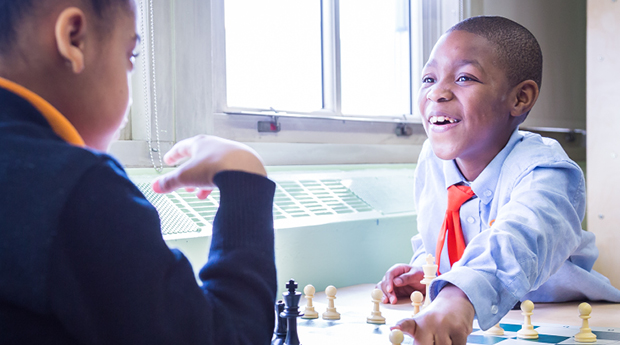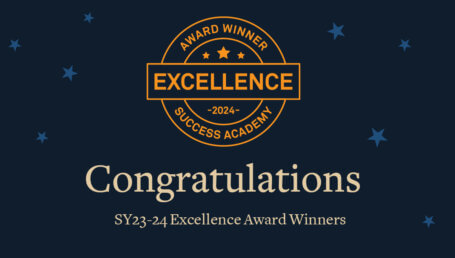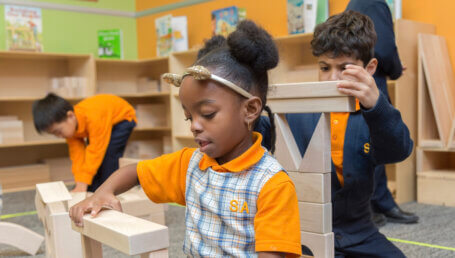
Earlier this summer, during a professional development session, the chess faculty had the chance to hear from David MacEnulty, one of the best chess coaches in the city. Most people know David as the New York City coach whose winning teams have been featured on CBS and CNN specials and in the film Knights of the South Bronx. But to me and other chess teachers at Success Academy, David MacEnulty is the person who introduced us to the game we love.
I first met David when I was a third grader at PS 70 in the South Bronx. His passion for the game was contagious, and I became fascinated by chess. I loved that it felt like one big puzzle. The rush that came with discovering new chess moves—a new combination or a new line—was exhilarating to me. David’s program was instrumental in not only helping me understand the rules and intellectual lessons of chess, but in keeping me off the streets and out of trouble.
In less than a week, I will begin teaching chess at Success Academy Bronx 3. I thought I would pass along some of the lessons that David recently shared with us at T School. I think some of these lessons extend beyond chess and can inform every teacher’s practice.
- There are no shortcuts. In chess, and in life, patience is crucial. Chess punishes impulsivity—you must learn to evaluate all possible moves before picking up a piece. Every move you make—both in chess and in life—can have either negative or positive consequences.
- Integrity is king. David shared two stories: one about his students acting without integrity and the other about his students being on the receiving end of dishonesty. In the first case, he gave his students a serious talk. “I would rather have you lose 100 games honestly than win one by cheating,” he told them. Whether it’s violating the touch-move rule by not moving a piece you touch or recording a loss as a win, cheating is absolutely unacceptable. It undermines both the integrity of the player and the team. In essence, chess teaches students the importance of honesty and integrity in all things, and that one’s reputation should matter more than a win-loss record.
- Parental involvement. When David began teaching chess in the South Bronx, parents were not convinced that a game could make a difference in their kids’ lives. But after they saw their children’s confidence and academic performance blossom, they were sold on chess. Parents started attending tournaments, discussing their scholars’ growth, and asking how they could help. David encouraged us to get to know our scholars’ parents so we can share with them how wonderful a game chess is.
I can’t wait to start teaching at Success Academy and contribute to a program that is growing and getting stronger every year. This summer, we learned so much from so many people, including famed Grandmaster Irina Krush.
But David’s talk reminded me that the lessons learned from chess go beyond one’s win-loss record. Above all, I am excited by the incredible opportunity to pass along to my students my passion for the game and what it teaches about perseverance and integrity.

![Dakim and David[1]](https://successacademies.org/wp-content/uploads/2015/08/Dakim-and-David1.png)







